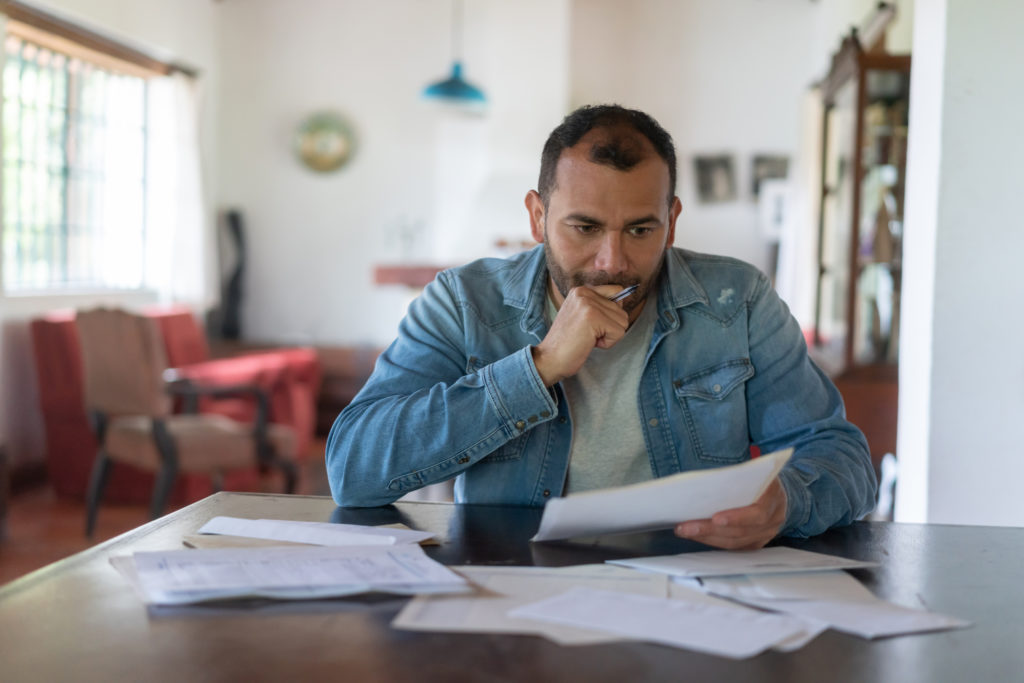How to Stop an Anxiety Attack and Prevent Them in the Future

Does the weight of the world ever cause you to feel intense and overwhelming fear, to the point that you have a physical reaction? It’s possible you’re dealing with anxiety attacks or panic attacks.
If you feel like your anxiety has become unmanageable, it’s important to seek treatment. Medication and psychotherapy are often the most effective methods for healing from anxiety. While online research is no substitute to personalized care, it can supplement the treatment you’re getting.
In this article, we’ll share all the info you need to get started managing fear, like an anxiety attack definition, signs of intense anxiety and how to stop an anxiety attack before it even happens.
What is an anxiety attack?
Clinicians use the American Psychological Association’s Diagnostic and Statistical Manual of Mental Disorders (DSM) to define, diagnose and treat mental health issues. While “anxiety attack” is a commonly used phrase, it is not found in the DSM.
The DSM does define anxiety, though, as a condition characterized by fear or worry that is disproportionate to the stimulus. This fear causes impairments in daily living such as difficulty socializing and completing work tasks.
There are several types of anxiety disorders, such as generalized anxiety disorder, agoraphobia, social anxiety, panic disorder or specific phobias. When people are looking for an anxiety attack definition, they may actually be curious about panic attacks, a symptom of panic disorder.
What is the difference between an anxiety attack and a panic attack?
An anxiety attack may be used to describe an overwhelming sensation of fear that has a sudden onset and manifests with physical symptoms (like sweating and an increased heart rate).
A panic attack, on the other hand, is a sudden feeling of terror that reaches a peak within minutes and causes such intense symptoms that a person may fear dying from them. People who have experienced panic attacks report feeling out of control.
Panic attacks can be expected or unexpected, meaning they result from a known or anticipated fear, or they may begin seemingly out of nowhere, whereas anxiety usually has a known cause.
What does an anxiety attack feel like?
An anxiety attack or panic attack is a result of overwhelming fear, but the attack itself can induce even more fear. People who have experienced these sensations may feel that they are spiraling, that control is slipping away and that remaining calm is impossible. An anxiety attack can feel unsafe and overwhelming.
What are anxiety attack signs?
Many of the sensations of an anxiety attack or panic attack are interior, meaning the person experiencing them will notice. However, there are also anxiety attack symptoms that are observable by others. Here are the most common anxiety attack signs:
- Shaking or trembling
- Sweating
- Chills
- Difficulty breathing
- Intense fear
- Nausea
- Fast heart beat
- Difficulty sitting still, or freezing in place
- Redness in the face and neck
- Feeling a loss of control or feeling like you are going to die (panic attacks only)
There are many other possible feelings and symptoms of anxiety attacks, and they will differ for each individual. If you are unsure whether yourself or a loved one is struggling with anxiety attacks, a medical or mental health professional can help you get the clarity you need.
How do I know when to get help for anxiety attack symptoms?
It can be hard to tell when anxiety warrants professional help. Use these tips from Mayo Clinic to gauge when it’s time to reach out for help.
- Your worries start to overflow into other important areas of your life and make normal living feel impossible
- Your anxiety interferes with relationships
- Your fear feels difficult to control or reign in
- In addition to anxiety, you feel depressed or use substances to cope
- Your fear is correlated with a physical health problem
- You start to think about suicide
If the fear you’re facing causes you to think about harming yourself or someone else, reach out for help immediately.
Where do I get help for anxiety attacks?
Trying to deal with constant worry on your own can be frustrating and isolating. Sadly, mental health struggles like anxiety can drive people to harmful coping strategies, like drinking and using drugs.
If your anxiety has led you down a path of substance use, Pyramid Healthcare can help. With a full continuum of care and specialty programs, you’re sure to find what you need. Get help now.



